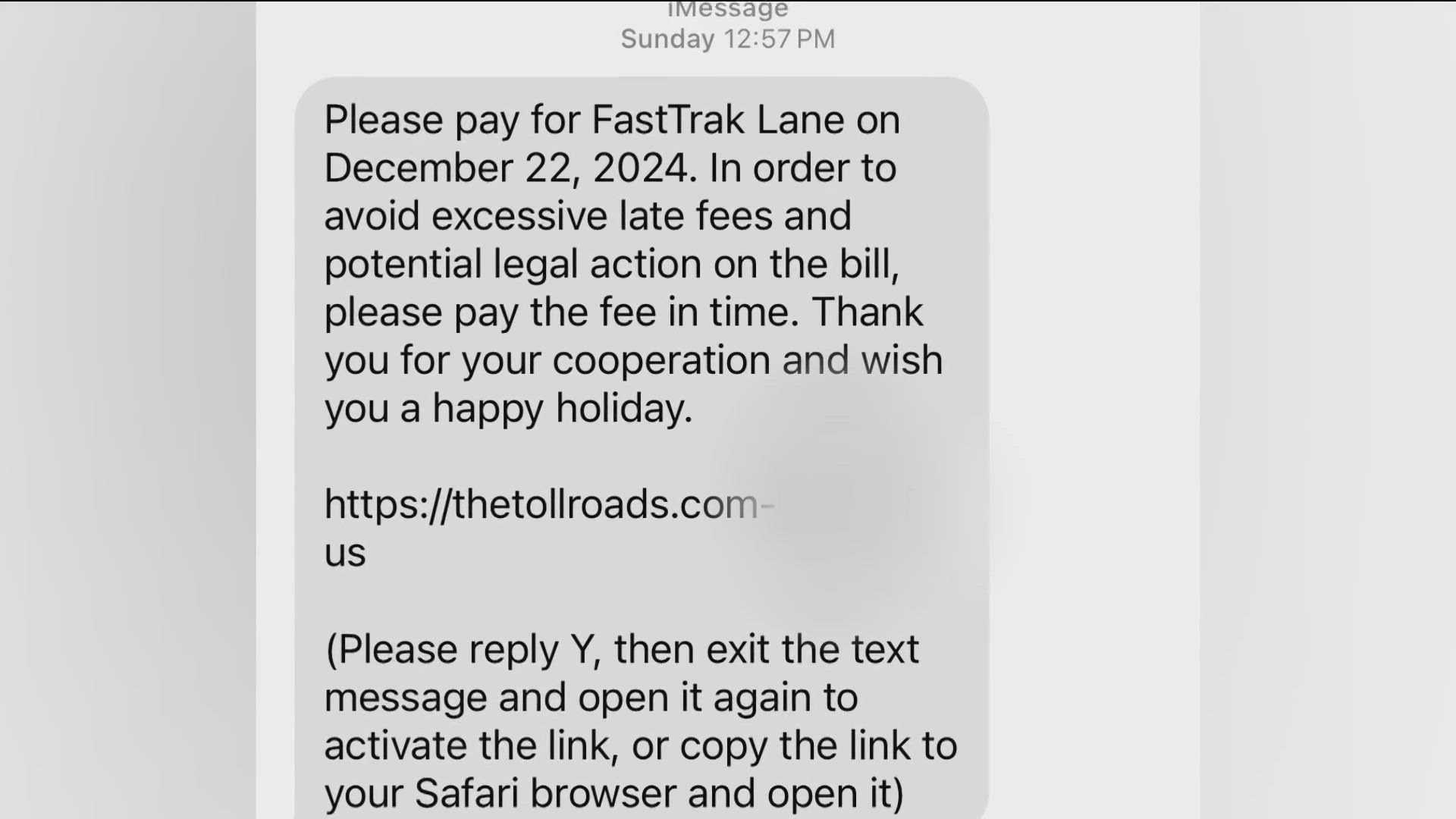News
Fake Toll Text Scams Target Drivers Nationwide, Warn Authorities

BRUNSWICK COUNTY, N.C. (WECT) – The Brunswick County Sheriff’s Office is warning drivers about a surge in fake robo-text scams impersonating toll road collection services. The fraudulent messages claim recipients owe unpaid toll fees and urge them to click on malicious links to resolve the issue.
According to the North Carolina Department of Transportation, legitimate toll payments can only be made through NC Quick Pass or toll invoices. The sheriff’s office emphasized that clicking on links in these texts could lead to identity theft or financial loss.
Similar scams have been reported nationwide, with fraudsters posing as FasTrak, California’s electronic toll collection system, and EZDriveMA, Massachusetts’ toll service. The Federal Trade Commission (FTC) estimates that billions of dollars are lost to scams annually, with text-based frauds like these contributing significantly. In 2022 alone, $8.8 billion was stolen through such schemes.
One common tactic involves creating a false sense of urgency. Scammers demand immediate payment to avoid fines or license suspension. A sample text shared with Newsweek read: “Please pay your FastTrack lane tolls by February 4, 2025. To avoid a fine and keep your license, you can pay at,” followed by a fraudulent link.
Kevin Thompson, CEO and founder of 9i Capital Group, told Newsweek, “I first noticed it when I started receiving these texts despite my TollTag account being on auto-pay and fully up to date. That raised a red flag.”
Alex Beene, a financial literacy instructor at the University of Tennessee at Martin, advised, “Always go through the official channel for payments. If you receive a text with a link, do not click it.”
Efrat Tabibi, head of data science and analytics at Guardio, noted that rising toll fees have made such scams more prevalent. “Scammers take advantage of the high number of real toll transactions to create fake messages,” she said.
Jen Martin, head of fraud and claims at Citizens, warned that scammers often use stolen information to commit identity theft, which can take years to resolve. “Be cautious of messages that create a sense of urgency or fear,” she added.
Authorities recommend reporting suspicious texts to the FTC or your phone carrier and avoiding any links in unsolicited messages. Instead, verify toll payments through official websites.












